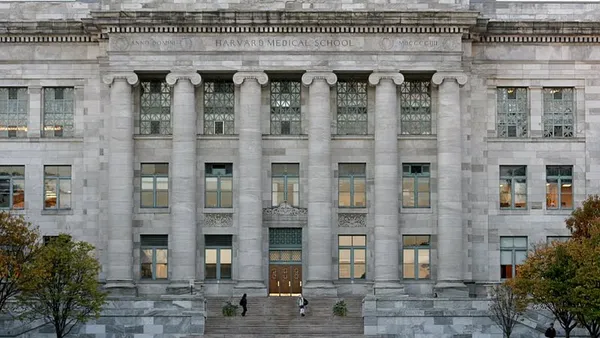Dive Brief:
- New Mexico’s attorney general is seeking to block a $1.9 million severance payment to Western New Mexico University’s outgoing president, calling it “a gross misuse of funds appropriated to support the education of Western’s student population.”
- Attorney General Raúl Torrez filed an emergency motion Monday asking a state court to prevent Western New Mexico from paying severance to President Joseph Shepard until an audit is completed of his university spending.
- Shepard resigned from the role in December amid scrutiny over his use of university funds, though he will stay on as a business professor and president emeritus. His resignation is effective Jan. 15.
Dive Insight:
Shepard’s resignation followed a November letter from the state auditor finding he excessively spent university funds on travel and furnishings. The agency described an overall “concerning lack of compliance with established university policies” by university leaders, including trustees.
New Mexico’s governor has also called for the resignation of the university’s entire board of regents. Since late December, the board’s top two leaders have resigned. A spokesperson for the university told Higher Ed Dive on Monday that all regents were expected to resign.
In his Monday motion, the attorney general noted that the regents terminated Shepard’s previous contract and voted on a new employment agreement for Shepard on Dec. 20 — the day Shepard announced his resignation.
The new agreement, negotiated with two regents and approved by the full board, includes the $1.9 million severance payment as well as a $200,000 annual professor’s salary and an eight-month paid sabbatical.
Torrez’s filing pointed out that Shepard’s previous contract provided avenues for the president’s exit. Firing Shepard without cause would have yielded severance of just under $600,000 — less than a third of what the board agreed to pay him under the contract approved in December. It could have also terminated him with cause and paid nothing under the old contract.
Ultimately Shepard resigned, a move that would have warranted no severance under the previous agreement.
“Prior to terminating the existing Employment Agreement with Dr. Shepard, the Board did not publicly acknowledge, explain, or hold any discussion regarding the variety of other termination options found in the existing Employment Agreement much less explain their reasons for not exercising any of those options or for taking this action with audits pending,” Torrez said in the motion.
The university declined to comment Tuesday, citing the pending litigation.
Western New Mexico’s regents agreed to the contract and payment — set to be made by Jan. 15, per the new agreement — while university officials are being investigated over Shepard’s use of university funds and publicly issued credit cards. That includes a state-level audit as well as a self-directed audit initiated by Western New Mexico.
In a statement, Torrez called the severance contract “an egregious misuse of public funds and a betrayal of the Board’s responsibility to act in the best interest of the university and its students.”
“The Board’s attempt to squander public funds appropriated for the benefit of WNMU students, and the surrounding communities violates their legal duties of undivided loyalty to serve the public good and must be stopped,” he added.
The attorney general asked for an evidentiary hearing prior to Jan. 15 and a temporary restraining order preventing the severance payment before then. He further asked for an injunction that would block the board from paying Shepard under the new contract until the self-directed audit was finalized.














